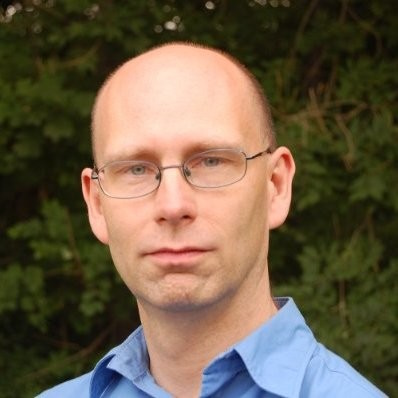Professor Erik Persson
Erik Persson, Ph.D. is Associate Professor at the Department of Philosophy and Co-Director of the Space Humanities Lab, both at Lund University. He is also Researcher at RISE – Research Institutes of Sweden.
His research and teaching are primarily focused on applied ethics. His research deals with ethical issues concerning biodiversity, climate change, AI, and space exploration. He teaches environmental ethics, animal ethics, engineering ethics, healthcare ethics, AI ethics, and space ethics. Read Astrobiocentrism, A New Model Inspired by the Pompeii Worm to Reverse Overheating in Nanosatellites, and Astrobiocentrism: reflections on challenges in the transition to a vision of life and humanity in space.
Erik published his Astrobiology as Science paper in 2023, where he refers to how astrobiology is characterized and discussed in the philosophy of science. The name astrobiology could be interpreted to imply that astrobiological research is limited to the search for, and eventual study of, extraterrestrial life (as was the case with astrobiology’s predecessor, exobiology). This interpretation of the term astrobiology would be misleading, however. Astrobiology is commonly defined as “the study of the origin, evolution, distribution, and future of life in the universe”.
His ongoing projects are Sustainable Distribution of Responsibility for Climate Change Adaptation (ReCCA) funded by FORMAS and How will different forward looking distributions of responsibility affect the long-term development of Artificial Intelligence? funded by Marianne och Marcus Wallenbergs Stiftelse. Read The future of AI in our hands? To what extent are we as individuals morally responsible for guiding the development of AI in a desirable direction?
Erik’s work contributes towards the UN’s 2015 Sustainable Development Goals (SDGs) to end poverty, protect the planet, and ensure prosperity for all.
Erik teaches the Artificial Intelligence: Ethics & Societal Challenges course at Coursera. This four-week course explores ethical and societal aspects of the increasing use of artificial intelligence (AI). The course consists of four modules, Algorithmic Bias and Surveillance, Democracy, Artificial Consciousness, and Responsibility and Control.
Erik earned his Ph.D. in Philosophy in 2008 from Lund University with a dissertation titled What is Wrong with Extinction? Read the Review of his work.
He earned his Master’s Degree of Arts in Philosophy in 2000 from Lund University. He also earned his Bachelor’s Degree of Arts in Philosophy from Lund University.
Between 2004 and 2005, Erik was Research Assistant at the SLU – Swedish University of Agricultural Sciences, where he worked on research in climate change ethics. He continues there as Visiting Lecturer since 2009.
During his time at Lund, while working on his Doctoral Graduation, Erik worked as Lecturer at the University.
After graduation, he became Senior Scientist at the Nordic Genetic Resource Center, where he coordinated the working group of representatives from the ministries of environment and agriculture in the Nordic countries. He also performed investigations and projects regarding conservation and use of genetic diversity. Read “Genetic variation as cultural heritage in Southern Sweden’s agricultural landscape” (GRAAL).
In 2010, Erik did research regarding the philosophical aspects of astrobiology at Pufendorf Institute for Advanced Studies – Lund University. Read Philosophical aspects of astrobiology.
He was Senior Lecturer at Umea University for a year until 2016, before becoming Research Fellow at the Center of Theological Inquiry, where he did research regarding ethics and potential conflicts between astrobiology, planetary protection, and commercial use of space. Read Interview With Erik Persson.
At the same time, between 2016 and 2017, Erik was also the Principal Investigator (PI) for the research project A Plurality of Lives at the Pufendorf Institute for Advanced Studies at Lund University. The project investigated how the discovery of extraterrestrial life, and the creation of synthetic life, would affect our conception of and attitude to life.
He was again PI between 2020 and 2021 continuing his work and research in applied ethics. Read Synthetic Life and the Value of Life and Visions of a Martian Future.
Visit his LinkedIn profile, Research page, Google Scholar page, ResearchGate page, and his Homepage. Follow him on Facebook, ORCiD, PhilPapers, Academia, and Loop.
